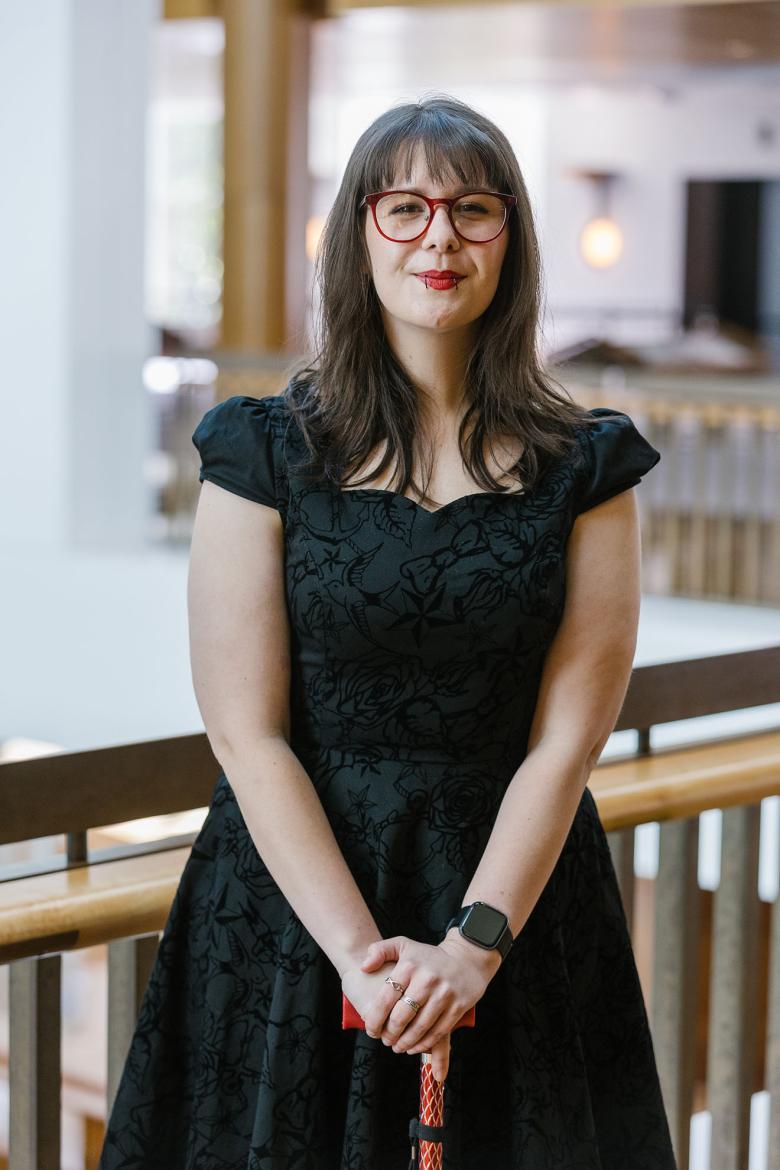Kiowa belongs to several groups that are underrepresented in STEM. ‘I’m a queer Aboriginal woman with a chronic illness,’ she says. ‘I also grew up in a regional area in a low-socioeconomic family.’
‘Not all these things are “visible” and not all of them impact me equally. But I think belonging to these groups means I’m very aware of how we unintentionally exclude folks at work. That could be by assuming co-workers are in heterosexual relationships, using male pronouns when we talk about a technologist, or assuming that everyone can see and hear the world around them.’
For Kiowa, these unconscious biases in the workplaces can lead to experiences that imply she doesn’t belong.
‘Often I’m the only woman in a meeting, and people assume I’m there as a non-technical person. I’ve been apologised to for discussions getting “too technical and boring me”,’ she says. ‘And I’ve experienced the unintentional use of racist slurs or offensive comments about “not acting like an Aboriginal person.”’
‘I’ve also struggled to explain that my walking stick doesn’t mean I don’t want to join in on activities – it’s to make sure I can join in! Because I’m a young person, people assume the mobility aid is for a short-term injury, which leads to some awkward explanations when they ask about it.’
‘At the end of the day, being underrepresented means you will have experiences that not many others have had before. That means you can advocate for positive change, but also means you spend time thinking about those problems instead of the STEM you’ve been hired to do.’
Improving and navigating the STEM workplace
Kiowa points out that there is a lot of scientifically backed research on improving workplace inclusion and diversity. ‘The work has been done on finding solutions,’ she says. ‘They just need to be implemented.’
Some of Kiowa’s top tips for organisations are:
- ‘Consider what type applicants your job ads will attract. Ads that laud fast-paced environments and aggressive growth are unlikely to appeal to applicants who need flexibility, like carers, folks with chronic illnesses or neurodivergent people.’
- Offer flexible working conditions to everyone and build a culture that means staff feel like they can access them. ‘At DSTG, I don’t hesitate to request leave or adjust my hours for appointments. I notice a lot of male colleagues accessing parental leave and people working part-time hours. And we get weekly emails on how to access counselling and support. Many workplaces offer these arrangements on paper, but flexible conditions need to be genuinely supported across all levels of the organisation for it to have an impact.’
- ‘Listen. Open a two-way dialogue by talking to your staff and acting on their advice. Sometimes it’s as simple as using they/them pronouns by default or changing words like “blacklist” to “denylist”.’
Kiowa highlights the importance of targeted funding to help underrepresented groups in STEM – she recently started a Master of Cybersecurity thanks to an ATSE Elevate scholarship. ‘I’d always worried about my career being stunted by my lack of postgraduate study,’ she says. ‘But I also worried that returning to study would be harmful in its own ways. Having financial and community support through the Elevate program, in tandem with the support I have in my current workplace, has been game changing for me.’
Good mentors and support networks are also essential. ‘I’ve been lucky enough to have some excellent, supportive supervisors,’ Kiowa says. ‘I’ve also developed networks of diverse folks and allies in STEM. Underrepresented people often find brand new challenges, and having a network means you can find out how others have handled similar challenges or check if your experience is normal. These networks have opened my eyes to the challenges others face.’
Self-care is also essential. ‘If you’re underrepresented, you’re going to be a trailblazer, carving out room for people like you in environments which have never considered you. It can be a taxing way to navigate the workforce,’ Kiowa says. ‘Unpaid labour is also expected in most academic STEM roles, and these 2 things are a recipe for burnout.’
‘So it’s important to carve out spaces where you can be successful that have nothing to do with work. Find a hobby like sport, art, baking or working on cars. Spend time with your friends and family. There are many ways we can bring value to the world which have nothing to do with STEM.’



